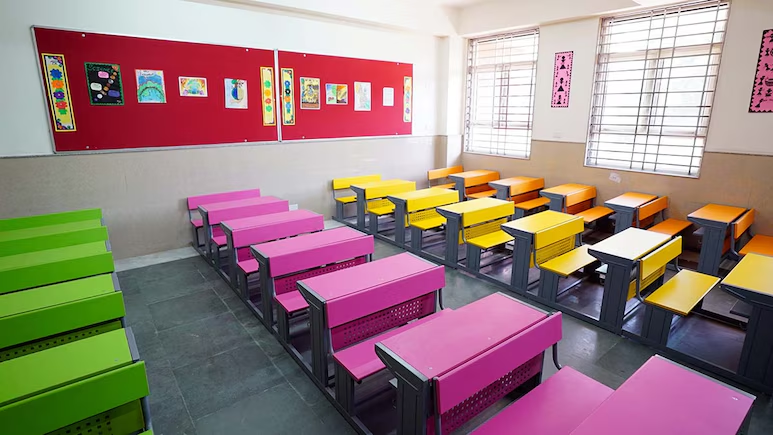
The Central Board of Secondary Education (CBSE) has urged the Supreme Court not to review the evaluation policy for Class 12, as changing the evaluation policy now would lead to revising the results of all the Class 12 students. CBSE, in the affidavit, said today, that the petitioners have done a wrong reading of the evaluation policy. Further, CBSE also added that universities have almost completed admission processes on the basis of Class 12 results and reviewing the evaluation policy would only lead to confusion. The matter will now be taken up after a week and petitioners will be required to file their responses on the basis of CBSE's affidavit.
The petitions filed by over two dozen students from Uttar Pradesh, Gujarat, Jammu and Kashmir and Rajasthan, through advocate Ravi Prakash, have claimed that the board has failed in implementing the procedure of dispute resolution mechanism, prescribed in a circular which was issued in August this year in compliance with the apex court's June 17 order.
Students have complained that their schools have failed to assess their results as per the 30:30:40 formula approved by the Court and that CBSE has not adequately redressed their grievance. Petitions filed by students who are aggrieved by their scores on account of the poor past performance of their schools.
The petitions demand that a school's poor past performance should not be counted while awarding final scores under the evaluation policy. The petitioners also claimed that the CBSE has not adequately redressed their grievance.
CBSE in its affidavit urging the Supreme Court not to revisit the evaluation criteria also said that the chart presented by the petitioners was based on a wrong reading of the evaluation policy as it considered the actual performance of students and not the past performance of the school.
CBSE in its affidavit said: “Accepting the request of the petitioners would not only mean deviating from the evaluation policy which has been accepted well across the country but, would also result in revising the results of all the students which is already settled and based on which almost all universities have almost completed their admission process.”
CBSE said the option of taking the improvement exams was available to the students who were dissatisfied with the evaluation policy but these students who filed the plea did not take that option so they cannot claim now that their rights were violated.
Class 12 exams were cancelled this year due to Covid-19 and an alternative evaluation policy was formulated. It assessed students based on their performance in Classes 10, 11 and 12 on a ratio of 30:30:40, respectively.
The total marks awarded had to be in consonance with the past performance of the school in Class XII Board examinations.
The policy was also based on moderating the final marks based on the historical performance of the school by taking the best overall performance in the previous three years' Board examination.
The petitioners produced a chart to the court in which they compared their scores after calculating them on the basis of the 30:30:40 method and the final scores that had been awarded by CBSE.
One of the petitioners who scored 91.27% ended up getting 66% when the results were moderated based on the school's past performance, showing a variance of over 25%. Another petitioner who scored 85.4% ended up getting 54% showing a variance of over 31% after the school's performance was factored in.

